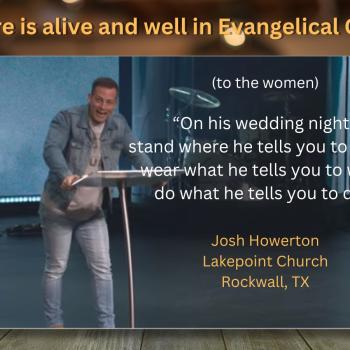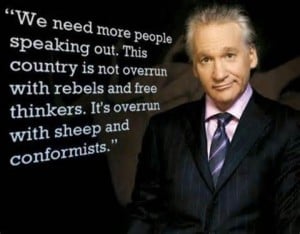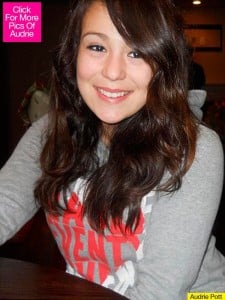My three most significant defining moments over the past decade have had one thing in common: they involved the decision to listen to some “crazy” people and ignore some “smart” ones. Learning to discern whose wacky wisdom to take to heart and whose sober advice to set aside has been a precarious curve, but the outcome has proven worth the risks. It all began in 2004 in a nail salon in Chelsea, near my first apartment in New York City.
I had moved from Alabama less than a year before and the transitions were stressful: acclimating to the pace, getting lost in subways, a big break-up, a demanding new job, finding which new friends were reliable, adjusting to expensive Manhattan life. Under the circumstances, I was feeling worked over on that crisp late September evening, and when I finally left the office I decided I needed a night alone and a little pampering.
My eyes were closed and my head was relaxed against the wall behind my seat while my painted fingers and toes rested in the drying machines. I heard a manicurist direct her client to the driers next to me, and felt the person sit down close by. A few minutes went by in the usual spa-standard silence. Then I heard a timid whisper, “Excuse me miss?” I know she’s not talking to me. Another minute…”Miss? I am so sorry to disturb you.” I opened my eyes and looked at the professional, stylishly put-together woman drying next to me. She smiled apologetically.
“I actually sat here for a while trying to fight it, but I just couldn’t… I really need to tell you something.” Still the polite Southern girl ready to accommodate the stranger, I raised my eyebrows and curled my lips in a grin that said, go ahead.
“This is going to sound so crazy,” she warned with a furrowed brow, “but I’m clairvoyant.”
Ohhkay.
“And the moment I sat down next to you I felt such strong energy, and God pressed heavily on my heart to give you a message.”
My expression told her I didn’t care anything about her weird message. Besides, my evangelical Southern Baptist upbringing taught me that people who claimed to be psychic or clairvoyant consorted with demons, were the antithesis of God/Jesus. I didn’t really believe that anymore, but scare-tactics drilled into your brain from childhood are hard to banish, especially when taken off guard.
She got my vibe. “Oh! Gosh, look, I’m not trying to sell you anything or force you to believe something, but I’m being told you really need to hear this.” I stared at her blankly. She dove into a hectic monologue as if she was determined to make me hear it before I could interrupt or get up and leave. I will never forget what she said:
“Look, you’ve always thought you have to be exactly what others expect. You think you will let people down or maybe you know you’ll make them mad if you try to break free and follow your heart, speak your truth. Others have overpowered your sense of self-authority, but you know who you really are. Now you are beginning a journey you must take to find your voice, and you have to learn how to believe in it and use it. You have something to say, something that must be said, something that needs to be heard.” She finally took a breath and looked at me with wide eyes.
“Um, I’m just tired tonight and trying to relax.” I smiled and leaned my head back again, shaken at her insight and wanting to disengage.
“Hey, I know this sounds nuts,” She said with a little embarrassment a lot of kindness and empathy in her voice. She checked her nails and gathered her bag. “I have to run, but I really do hope you’ll think about what I said. Good luck with everything.”
Exactly one month later to the date, on a golden-lit October afternoon, I was hurrying into my local drugstore. Running late for a table reading, I absolutely had to stop and pick up an allergy prescription. I was focused on a mission and striding at high speed through an aisle of pumpkins to the store’s door.
Exiting at the same time was a young mother laden with shopping bags, pushing her crying baby in a stroller and clutching the hand of her small, wriggly child. She looked tired and was distracted with managing her brood, and I had to swerve around her not to plow over her. I took three more steps before I heard a voice cry, “Miss!” It sounded urgent, like maybe someone collapsing beneath bags and babies.
“Miss, please!”
I turned around and caught her wide eyes. She didn’t seem to care that her toddler was pulling violently at her arm or that her toiletries were spilling out of one bag onto the sidewalk. We stood in the store’s doorway, the electronic doors jumping robotically as we held the laser movement detector hostage.
“This is going to sound strange,” she said in a soft, confidential voice, “but I’m clairvoyant.”
Are you kidding me?
“Your energy was so strong as you passed me, I couldn’t help but stop you. There is something you have to know.” She went on to say pretty much exactly the same thing the woman in the nail salon had so intensely relayed to me. You have been silenced by suppositions. You are on a difficult journey. You must find your voice because there is something that needs to be said, something the world needs to hear. You have to be brave; it matters.

Struck, confused and still in a very big hurry, I pushed my sunglasses back on and mumbled, “I am in a serious rush.” I turned and made haste toward the pharmacy, feeling rude and raw.
“I’m not trying to scare you,” her voice trailed after me, as if she could see right through me. “I just could not leave this store without telling you what God needed me to tell you. I wish you well.”
God again? Really? What the hell?
Precisely one month later was Thanksgiving day. Away from family, I enjoyed a homemade dinner at a friend’s apartment tucked on a block of SoHo that was off the beaten path. We talked till the wee hours and when I finally left to go home, the side streets were dim and oddly still for the city that never sleeps. Ugh, I’m going to have to walk all the way up to Houston to find a cab.
No sooner had I thought this than in the distance on bustling Houston Street, I saw a little yellow dot slow to a stop. It looked like its hazard lights were blinking. Crap, there’s a cab freeing up way up there and there’s no way I’m going to make it there in time to catch it. New York City cabbies wait for no one. Besides, in the dark shadows and from three blocks away, there is no way the driver saw me.
I quickened my pace, since there would be lots of competition for a taxi on Houston. The growing yellow rectangle hadn’t left yet, but no passenger had gotten out of it either. I finally approached the taxi and breathlessly peered in, expecting someone fiddling with their credit card or maybe throwing up in the back seat. No one. I opened the door and stuck my head in. “You open?”

“Well hello!” boomed a rich, deep, joyful voice with an accent I couldn’t identify with certainty. Egyptian? Iranian? “I’ve been waiting for you!”
I laughed dismissively and slid in. “Seventeenth between 8th and 9th please.”
He turned his whole body around and looked at me through the plexiglass barrier. Smiling widely, he stuck a dark, plump, nicely-groomed hand though the opening. He had watery, ethereal light eyes that didn’t seem to match his ethnicity. “So good to see you, I’m Aman.” I hesitated skeptically then shook his hand. It was warm, soft and luxuriously cushiony. At the next stop light, he turned to me again and said in a sing-song voice, “There is something I have to tell you.”
“Don’t tell me,” I said, feeling a little delirious.
“You see, I’m clairvoyant,” he announced.
“Oooooh nooooo,” I moaned as the light turned green.
He had his own lilting, philosophical way of saying it, but he said it. You are on a journey. You must listen to yourself, not to those who try to tell you who you are, what you are made for, and get you to believe it. People will try to stop you, but you must trust yourself and find your voice, your purpose. Don’t be afraid. You have something to say that desperately needs to be heard.
I tried to swallow the lump in my throat. He talked in that surreally beautiful voice the whole way across town. We turned onto my street.
“You have to do it,” he said with sudden seriousness. “Life is not what you think it is, trust me, I have been on both sides and I know for sure.” His translucent eyes were teary. “To truly know God is to understand life differently, to live it counter to common knowledge, to resist the status quo, to risk everything for real life. It is threatening to many, if you live in love and truth for your own peace and the sake of others. But you must do this.”
He pulled up in front of my apartment. “There is more I have to say to you. Don’t worry, I will turn off my meter and we can sit here as long as you want and answer your questions, you won’t have to pay.” A cabbie not rushing for the next fare?
Tears had begun to stream down my cheeks. “I have to go,” I stammered.
“Are you okay?”
I checked the meter’s trip total and pulled out my wallet.
He put up his big, gentle, plush hand. “You don’t owe me anything.”
—–
At the end of 2007, the prior events a forgotten memory, came a strange twist in my 13-year advertising career: I applied to seminary. After a series of (other) bizarre events that involved visitors in the night and whole weekends spent with my face planted in the old rug in my apartment, I knew beyond my own protests that I was called. I was really out of my element. But the amazing legacy of Dietrich Bonhoeffer, among many others, had me fascinated with Union Theological Seminary at Columbia University on the Upper West Side. With fear and trembling, I made my way through the arduous application process.

I mentioned it to Tim Keller, the famous author, speaker and pastor of Redeemer, an evangelical-based Presbyterian church in NYC that I had begun to sporadically attend. Although I had noticed no women had pastoral roles or any real authoritative leadership in worship or teaching, I admired the intellectual eloquence of his sermons. So my heart dropped when he didn’t explore my passionate enthusiasm before saying something along the lines of: you don’t need to go there, the theology isn’t solid, the programs are a mess and it’s so outrageously radical its funding is going dry up. He said maybe I should start slowly by taking an intro at the (conservative) theology classes he was starting.
I went home downcast and deflated, feeling intimidated and uncertain. I sat on my bed and prayed. Then I thought I heard a divine whisper that said it didn’t matter what Tim Keller thought, that Union was indeed where I should pursue admission. What? Was God telling me that I should ignore the advice of an internationally revered Christian authority figure? I listened quietly again. Older, successful, ordained man vs. little ol’ me, who would know better? But then something miraculous happened. I just knew in my heart that my instincts were right regardless. I experienced my own personal conviction as the confirmation of God, and vice versa. I didn’t give Keller’s assessment another thought, went full steam ahead and got accepted to Union. The most impactful, meaningful, productive, life-changing, profound and wonderful decision I ever made.
—–
It was August, 2008 and I was sweltering in my home town of Birmingham, Ala. Visiting from New York City to see my family in my last few free days before starting seminary, I was also doing a lot of praying, reading, listening keenly for God’s guidance. I heard that the local Church at Brook Hills, a Southern Baptist offshoot of a schism at the church I grew up in, had hired a (then) 29-year-old pastor. His sheer youth seemed a notable shift, so I visited that Sunday out of curiosity.
The members of the crowded, cavernous mega-church were nominating elders and deacons. The young pastor, a recent graduate of New Orleans Baptist seminary named David Platt, preached a sermon on the qualifications and expectations for these roles: honor, self-control, reliability, respectability, high character above reproach, impeccable discernment and on. Then he launched an unexpected conviction into the description: his belief that women were not allowed to hold either position. The immediate, unspoken take-away was that he believed God via the Bible had indicated that women held none of the aforementioned qualities, and regardless, the patriarchal hierarchy was not to be messed with. He nervously indicated that he couldn’t help it, it was “God’s word” that women were restricted from Christian leadership roles.
He cited 1 Timothy 3:1-13 and the lack of female pronouns used in Paul’s descriptions (hello, this is a 2nd century Greco-Roman document produced in the Judaean/Mediterranean Diaspora!). His lesson plan also bound modern women to the Genesis myths of creation and the “fall of man” as doctrinized by Paul in 1 Timothy 2:11-15, where Paul decides that women should “learn in quietness and full submission” and not be permitted to “teach or assume authority over a man” because, after all: “Adam was formed first, then Eve. And Adam was not the one deceived; it was the woman who was deceived and became a sinner. But women will be saved through childbearing–if they continue in faith, love and holiness with propriety.” Platt seemed to say to all the 21st century, well-educated and fully competent women in his large congregation, “Sorry ladies, not my fault, sucks for you that God didn’t make you equal to men!” He said we have different gifts, like administration, event planning and teaching and caring for children.

I could not believe that a fellow Generation X Christian was still worshipping the false god of ancient patriarchally-interpreted texts using “order of appearance” jargon and playing the mythical blame game. I had to laugh thinking of Jesus pacing heaven, only willing to save my sorry ass if I became a baby factory, like so many victimized women from biblical times to today, across the globe. But here, Platt broke from his fundamentalist biblical literalism to say that actually, Jesus would save women the same as men. Wait, what happened to taking this text word for “every-little-masculine-pronoun-means-women-can’t-be-elders-or-deacons” (much less pastors) word?
You might think hearing that sermon burned enough to seal the deal, either making me abandon my Christian religion or abandon my plans to start seminary the next week. Instead, it lit another kind of fire inside. I realized God had led me to visit that church that day to show me my purpose, to teach me what I needed to use my voice to say, to tell me what important things people — God’s women — would need to hear. God incited a righteous rage in me like I’d never known, opening my ears and eyes to the lies that can be disguised as the “will” or “word” of God to the detriment, dismissal and oppression of half the world’s population.
Looking back, I had to ask, what is the difference between a regular person claiming clairvoyance and an ordained man claiming to know and speak unequivocally for the infinite mind of God? What sounds more crazy: that a stranger might try to suggest something that I actually recognize as true deep in my soul, or that a man in a position of earthly power is trying to convince me his version of God “won’t let” an entire gender of human beings “do” or “be” certain things? The latter is much more insane.
Furthermore, I had to decide which voices had spoken to me with personal consideration, careful discernment, encouragement, sensitivity, respect, compassion, empathy, clarity, fairness, and good modern sense as a vessel of God, not a commander and wielder of some assumption of God’s authority. I had to admit that the “crazies” had embodied God with transparent purity, letting God meet me and address me directly through their openness, letting God say whatever God wanted to say in that split second, letting me own my own defining moments. It also turned out the “crazies” were absolutely right about my future. Who else would have guessed that as a young, arguably post-evangelical woman, I would become an ordained Christian minister myself?















